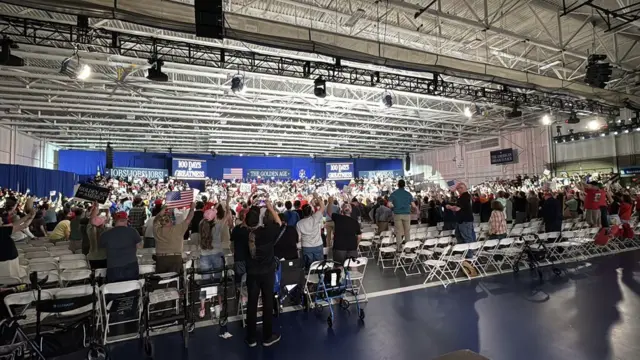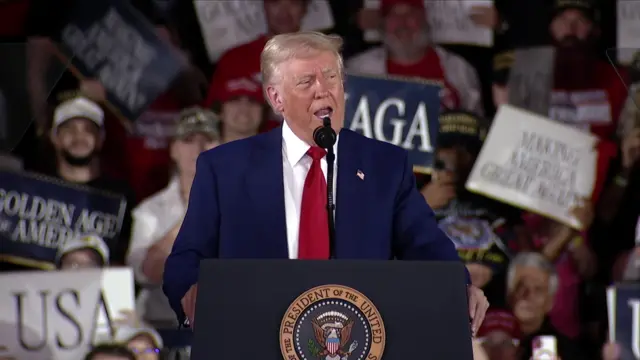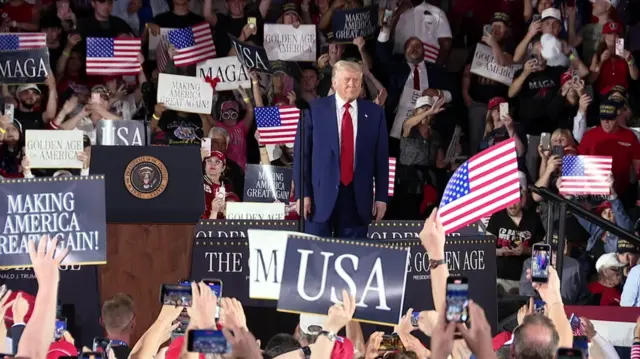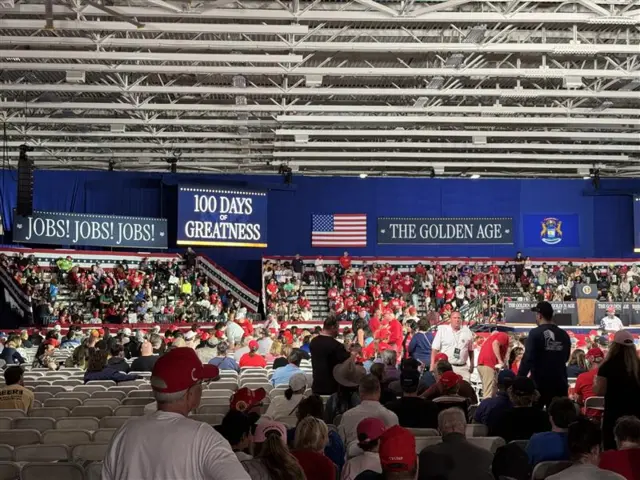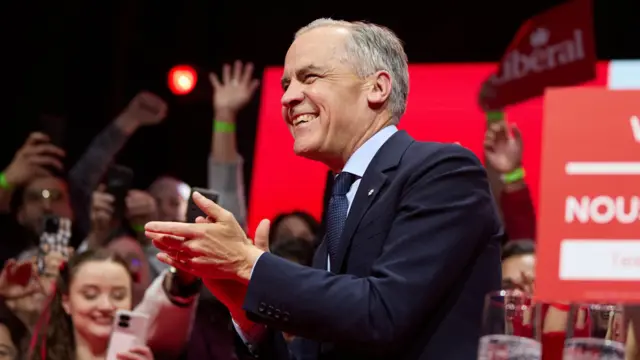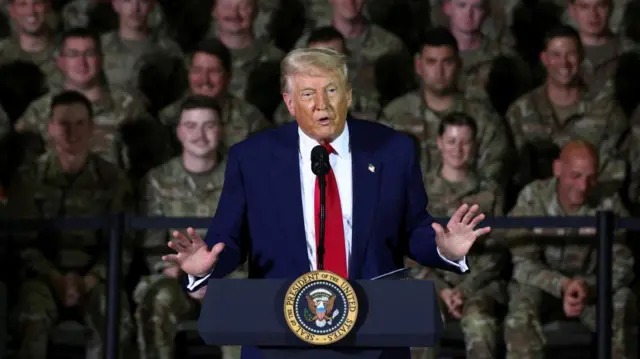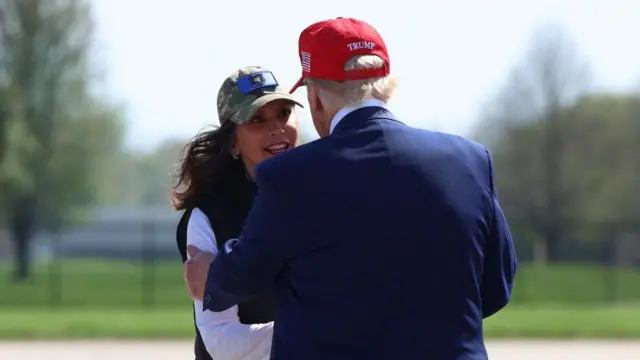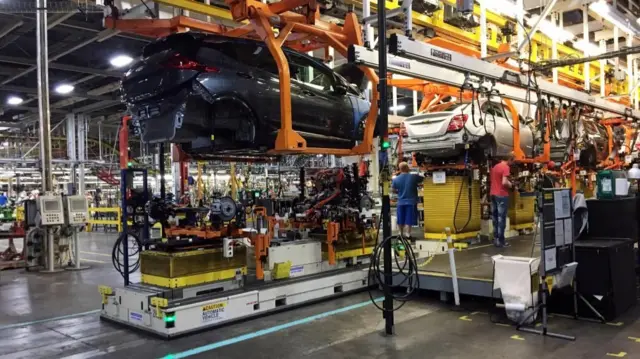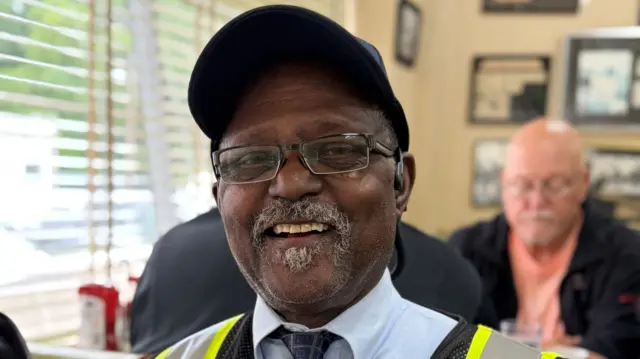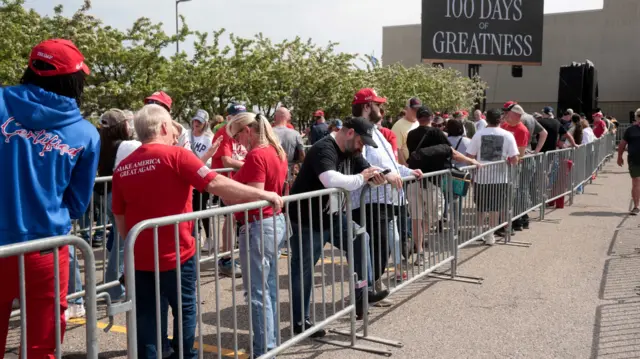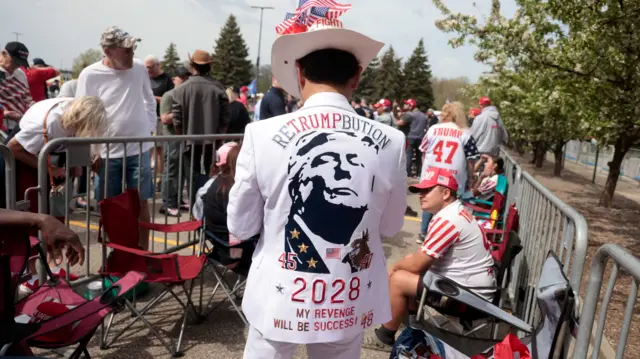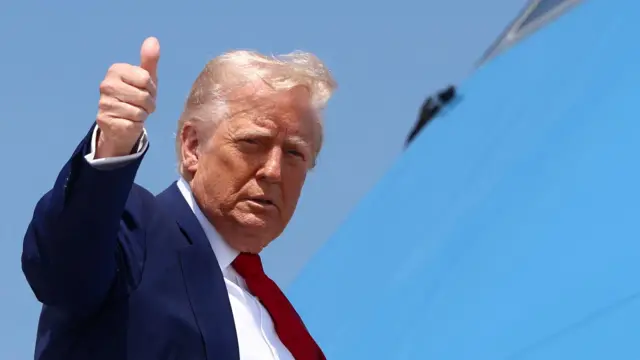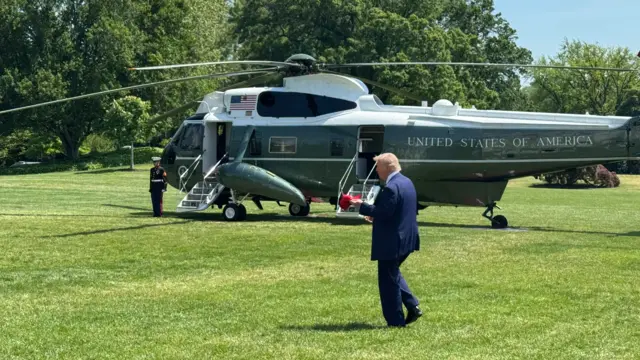Supporters in the crowd draw Trump's attentionpublished at 23:24 BST 29 April
Trump adds that he has the "most consequential presidency" in history, adding that even his liberal opponents agree with his statement.
His administration, he says, is "ushering in the golden age of America".
He then singled out a member of the audience, calling him a "front row Joe".
"I miss you guys, I've missed the campaign," he tells the audience.
He continues to recognise his supporters, saying that one of them look like he's "lost a couple of pounds" since he saw them last.
He notes that another has been to over 100 of his rallies.

